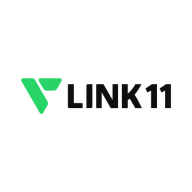

Azure DDoS Protection and Reblaze compete in the DDoS defense category, with Azure showing strength in cloud integration and Reblaze in feature richness. Based on integration and ease of use, Azure has the upper hand for Microsoft-centric infrastructures, while Reblaze appeals to those needing robust management and customization.
Features: Azure DDoS Protection offers seamless integration with Azure, adaptive tuning, and extensive security options. In contrast, Reblaze provides ease of use, real-time monitoring, and customizable features with robust website protection and traffic management.
Room for Improvement: Azure DDoS Protection could enhance reporting and simplify configuration, addressing challenges with resource consumption and centralizing metrics. Reblaze could improve change management and reporting automation, as users desire more intuitive interfaces and granular WAF rules.
Ease of Deployment and Customer Service: Azure supports public cloud environments with tier-based customer support, facing concerns over response times. Reblaze supports hybrid and multi-cloud setups, offering direct support though users sometimes find the interfaces less intuitive. Both require skilled setup and maintenance.
Pricing and ROI: Azure DDoS Protection is cost-effective for large deployments but expensive for smaller ones, offering comprehensive IP protection. Reblaze offers negotiable pricing models, appealing for long-term investments, though its high cost may deter some unless discounts are available.
The response time is very slow, especially when multiple teams are required to collaborate on a case.
Integrating more auto-remediation features with an AI engine would enhance its efficiency.
I have noticed some false positives with the Web Application Firewall yet not with DDoS Protection.
I suggest adding more services and additional services, which would be beneficial.
If used with Front Door or Web Application Firewall, DDoS Protection is included without additional cost.
The pricing is somewhat costly, usually around $3,000 to $4,000 per month.
Compared to competitors, it is good.
The security architecture with Azure DDoS Protection is critical for safeguarding our financial organization's infrastructure.
The integration of various tools with Azure Firewall, like DDoS Protection, Web Application Firewall, and Azure Front Door, is quite effective.
We can plug and play components to build applications or conduct research and development easily.

Azure DDoS Protection, combined with application design best practices, provides defense against DDoS attacks.
To learn more about our solution, ask questions, and share feedback, join our Microsoft Security, Compliance and Identity Community.
Reblaze provides real-time monitoring, reporting, and botnet protections, enhancing security management with agile customization. Its intuitive dashboard supports efficient decision-making, while flexible rules and geo-blocking ensure security across geographies.
Reblaze is primarily deployed for web application firewall (WAF), DDoS prevention, and bot management, effectively defending against Layer 7 DDoS, phishing, SQL injections, cross-site scripting, and unwanted IP traffic. Supporting both public and private cloud deployments, including Amazon-hosted applications, Reblaze filters malicious activities to safeguard internet businesses. Users appreciate its comprehensive security approach, particularly for mobile app protection through its API and advanced filtering against script injections. Room for improvement includes change management, automation, reporting alerts, session management, and more granular WAF features. Adjustments in pricing and enhancements for bot management and bad IP address databases are sought after.
What are Reblaze's Most Important Features?In finance, Reblaze addresses the stringent demands of data protection. E-commerce platforms benefit from its robust perimeter defenses against typical threats. Healthcare industries utilize its capabilities to secure sensitive patient data, leveraging both real-time monitoring and responsive alert systems to maintain compliance and integrity.
We monitor all Distributed Denial-of-Service (DDoS) Protection reviews to prevent fraudulent reviews and keep review quality high. We do not post reviews by company employees or direct competitors. We validate each review for authenticity via cross-reference with LinkedIn, and personal follow-up with the reviewer when necessary.